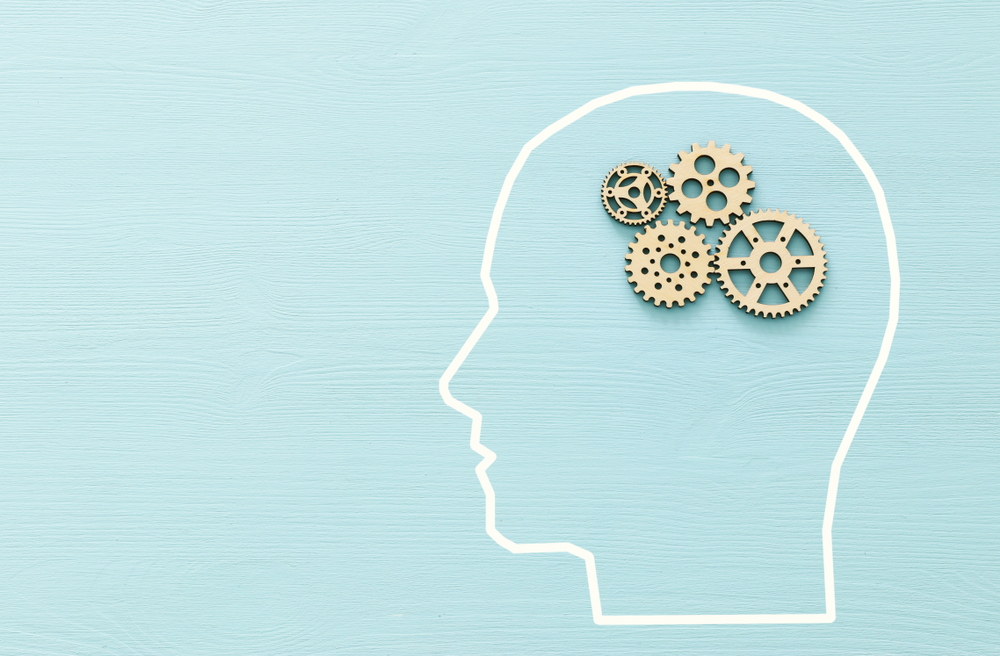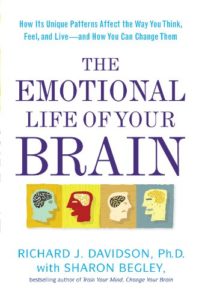
“When we are about to choose a partner, or get married to a certain partner –that’s the kind of decision that we cannot make based on a cold cognitive calculus” says Richard Davidson, the seminal neuroscientist known for his research on what determines our emotional styles. In the interview with Krista Tippet, he adds “we consult our emotions for making that decision, and if our emotions were disrupted, it will really impair our capacity to make those kinds of decisions.”
In the assessment of the functioning of the emotional brain, he identifies six innate capacities which constitute our emotional styles in life. These styles are determined by the biological factors represented in our DNA and by the psychological factors ruling in our familial backgrounds.

Each style can be traced to the neural events in the brain, meaning “they are real and not merely theoretical constructs, and each is described as a dimension” says Richard Davidson. The combination of where the individual falls on each dimension adds up to his overall Emotional Style in life.
Each emotional style is a constellation of emotional reactions and coping responses that differ in kind, intensity and duration. Just as each person has a unique fingerprint and face, each one of us has a unique emotional profile one that is so much of part of who we are.
Resilience Style
When faced with an emotional or other challenge, do you bounce back and continue with perseverance or withdraw in a sort of depressed state of resignation on the low end ?
Outlook Style
Do you let the emotional clouds darken your view and prevent you from seeing the positive in the bigger picture? Or do you tend to see the positive streak no matter what?
Social Intuition Style
Can you read people’s body language, to the extent of being known as a “psychic” on the high end or are you puzzled by – even blind –to them?
Self-Awareness Style
Are you aware of your thoughts and feelings and attuned to the messages your body sends you? Or do you act and react without knowing why you do what you do on the lower extreme? How clearly you can hear your inner self?
Sensitivity to Context Style
Are you surprised when people tell you that your behavior is not very appropriate? Do you respect the rules of the social interaction?
Attention Style
Can you screen out emotional and mental distractions, put away excess or unwanted thoughts and keep your attention in focus or are you easily hijacked by external stimulus?
The next fundamental question his research raises – “is there anything we can do to change our emotional style, breaking it further down: can we change our response to the pleasures and vicissitudes of life? “
On one hand the styles are evidently hard-wired into our neural circuitry by birth onwards, and on the other hand, thanks to the neuroplasticity of the brain, we may work to adjust the wirings to attain a more solid and balanced emotional standing, according to Richard Davidson. Although the pessimist by nature will never get to see the world in pink light, or will look to see the reality of the picture in full light, he may nevertheless find some pleasure in the corners of life with an “effortful” practice of good seeing.
He emphasizes focusing and refocusing attention accompanied by the regularity of practice as the key to regulating disruptive emotions and thus, moderating our response to adverse life scenarios. He believes that attention is the building block of everything else, paying tribute to what William James proclaimed at the turn of the century:
The faculty of voluntarily bringing back a wandering attention, over and over again, is the very root of judgement, character, and will.
On the training of attention, Richard Davidson suggests mindfulness practices that involve paying attention to the body and to the breath. He mentions another practical method clear the way from distractive and annoying thoughts:
…if we can learn to pay attention to something that’s not that interesting, it can really help strengthen our attention. Our attention is stimulus-driven. It’s pulled and grabbed by our environment. Yet we can actually be the rudder of our own mind, if you will, and steer it, direct it where we would like it to be directed by strengthening our capacity to voluntarily deploy our attention.
This is a very simple kind of strategy that research shows changes brain circuits of attention and leads to improvement… “
That is, “improvement of our affective state is possible by maintaining high levels of positive affect when faced with adversity, ” says Richard Davidson. “It is not that resilient individuals do not experience negative affect, but rather that the negative affect does not persist in them.”
Duygu Bruce
Sept 29, 2019







